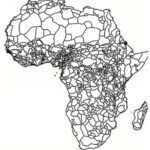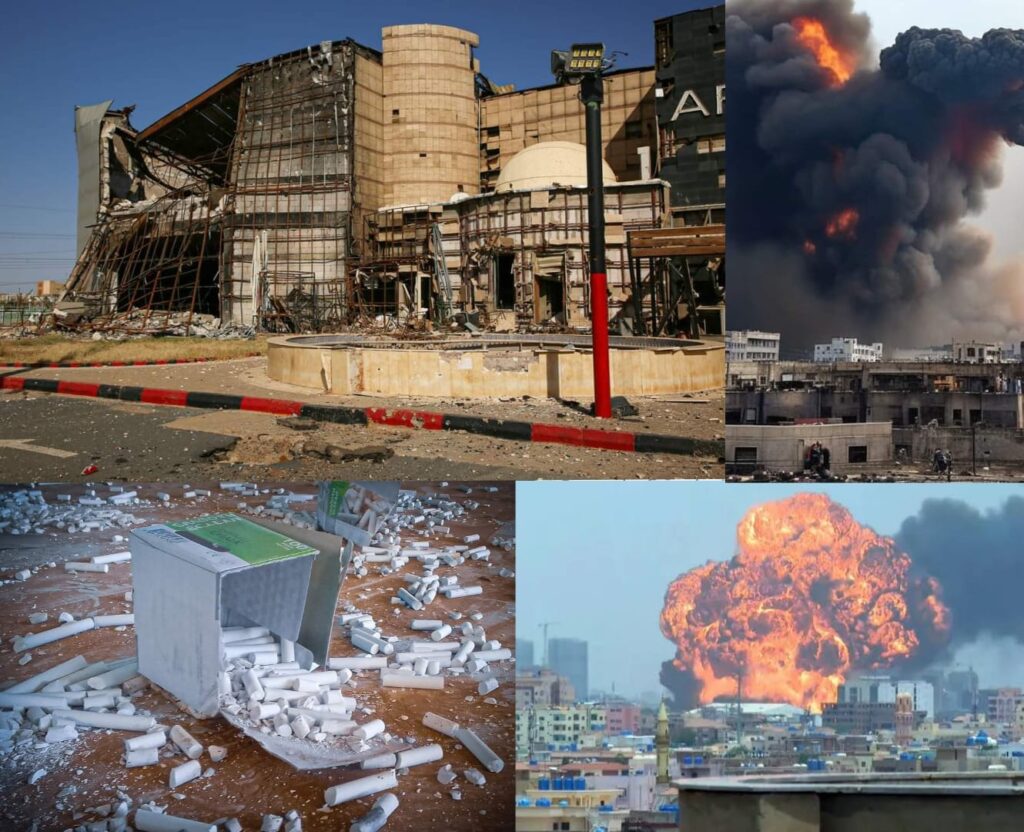Humanity comes with great risks. Sudanese activists bravely step up to feed the hunger victims in emergency kitchens, as it is too perilous for foreign aid workers to do so. However, the warring factions, namely general Abdel Fattah al-Burhan’s government army and Hemedti’s Rapid Support Forces (RSF) paramilitary unit, often shut down these kitchens and subject the workers to arrest and even death.
In the past year, Sudan has suffered significant losses. Schools, hospitals, ministries, office buildings, bridges, and marketplaces have been destroyed by war. The conflict has also torn apart the bond between people, leading to ethnic cleansing and tens of thousands of deaths. This devastating situation follows a period of hope, when the autocratic and Muslim fundamentalist President Omar al-Bashir was ousted in 2019 after a popular uprising. But the revolution, as the Sudanese call their uprising, was not complete. The army refused to hand over power to civilian rule and months of demonstrations failed to persuade the generals to resign. Then a conflict within the armed forces plunged Sudan into war: Hemedti did not want to integrate his forces with Burhan’s regular forces. As a result, Sudan began to split; rarely has an African country fallen apart so quickly.
Relief supplies
The residents left behind in the rubble are becoming hungrier and food security in Sudan has deteriorated significantly since December. The RSF seizes trucks carrying aid and the government army stops food convoys. Undisciplined soldiers, especially but not only from the RSF, terrorize civilians. RSF fighters plunder aid warehouses, banks and homes. Refugees tell of executions, rapes and destruction of displaced persons camps.
Sudan has always been a country of traders, but this entrepreneurial spirit is dying under chaotic violence: trucks cannot get past the numerous military roadblocks without paying a hefty bribe. And recently the RSF pulled the plug on the internet, meaning emergency kitchen activists can no longer exchange information, the mobile banking system no longer works and the millions of Sudanese in exile can no longer transfer money.
The emergency kitchens are the pearls in the shit. Initially, they served as resistance committees against Bashir and the army, but later they transformed into emergency committees. They faced initial hesitation in seeking donations from foreign aid organizations due to the absence of on-site employees. The concern was how to ensure transparency in the utilization of the funds. “You don’t know them, you don’t know their capacity and political background, and the warring parties do not grant permission to collaborate with these committees,” explains an aid worker. However, now foreign aid workers are collaborating with the kitchens, leading to the emergence of a new horizontal form of aid provision.
Just as the resistance committees were fought before the war by both the RSF and the government army, the warring parties now see the emergency committees as a dangerous form of citizen initiative. For example, on March 23, the RSF in Khartoum arrested activists who were distributing food to thousands of civilians. Sometimes the emergency committees even have to stop completely. And now everything indicates that Sudan is heading for a huge humanitarian disaster.
Al-Barari emergency kitchen
Maybe things wouldn’t have gotten so out of hand if foreign powers didn’t have such a toxic side effect. Sudan has known war since its independence in 1956. Rebellions in the periphery were not carried out by the government army but by hired militias, such as the Janjaweed in Darfur from which the RSF emerged. But there was also a tradition in which all the fighting groups kept talking; like a palaver in the bazaar, they continued to negotiate their differences. And otherwise there would have been America as a police officer who enforced solutions, such as with the secession of South Sudan in 2011. The US no longer has that influence and that vacuum has been filled by medium-sized states. On the side of the RSF it is the United Arab Emirates (UAE), on the side of the government army it is Iran.
Drones from Iran
The UAE is a key player. The wealthy Gulf state trades the gold that Hemedti’s family mines in the Jebel Amer mines of North Darfur and supplies the RSF with weapons via an airlift to eastern Chad and from eastern Libya, where friendly warlord Khalifa Haftar holds sway. It is believed to be working with the Africa Corps, the former Wagner Group, and the final destination of some gold is thought to be Moscow. The drones and anti-aircraft guns supplied against president Burhan’s air force often proved decisive in battles. The RSF controls the vast majority of Darfur’s capital Khartoum and is on the march in the east and southeast of the country.
The spoiler on the side of the government army is Iran. Since that country started supplying drones, the government army has been making steady progress in Khartoum’s sister city Omdurman, but in the narrow alleys and streets the drones are causing enormous damage. The small victories of the government forces make Burhan persist in his refusal to enter into peace talks with Hemedti, even though he is in a considerably weaker position militarily than his rival.
One year after the war broke out, the battlefield has become more scattered. Previously, the RSF had a force of one hundred thousand soldiers, but now looters from the entire Sahel region have joined their ranks. These new recruits in particular, are believed to be responsible for the most severe human rights abuses. Although the government army has twice the number of RSF fighters, it initially started the war with only a few motivated soldiers. The Sudanese army had been weakened under Bashir’s rule, turning into a mere business empire.
There is a concern on the RSF side that Hemedti may struggle to control the influx of new recruits. On the government side, Muslim fundamentalists are gaining more influence. The Al-Bara bin Malik Islamic Brigade consists of prominent former associates of Bashir, some of whom are wanted by the International Criminal Court in The Hague. These Islamic radicals are not seeking peace; instead, they desire to regain their previous influence.
This article was first published in NRC on 13-4-2024

